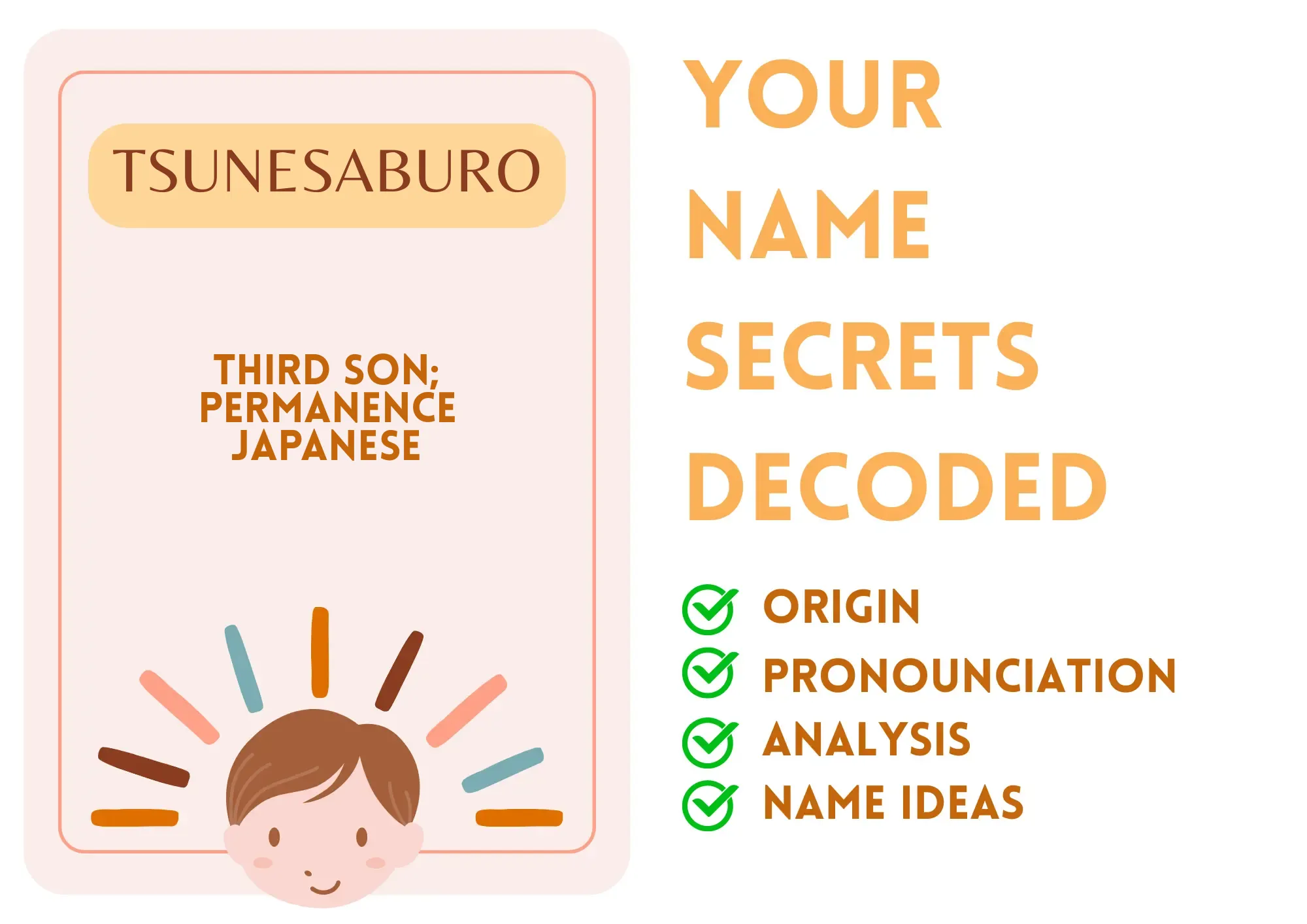
Tsunesaburo
Tsunesaburo is a traditional Japanese name that is rich in cultural significance. It can be interpreted to mean 'the third son of Tsune', where 'Tsune' often relates to 'permanence' or 'eternity' in Japanese, and 'saburo' signifies 'third son'. This name is predominantly male and reflects familial lineage, making it a common choice among Japanese families.
Historically, Tsunesaburo carries the weight of cultural traditions, reflecting the importance of birth order and family heritage in Japanese society. The name is often well-regarded, evoking feelings of respect for ancestry, continuity, and stability.
In literature and popular culture, Tsunesaburo has appeared in various forms, often representing traditional values and familial ties. Parents who bestow this name on their children often feel a connection to their heritage, emphasizing the link between past and present.
Basic Information
Gender: Boy
Sounds Like: Tsoo-neh-sah-boo-roh
Pronunciation Explanation: The name is pronounced with the emphasis on the first syllable 'Tsoo', followed by 'neh', 'sah', 'boo', and concluding with 'roh'.
Summary and Meaning
Meaning: third son; permanence (Japanese)
Origin: The name Tsunesaburo has Japanese origins, steeped in cultural practices related to naming conventions and family hierarchy.
Usage: Tsunesaburo is traditionally a masculine name, commonly given to males in Japanese families.
Name Number (Chaldean)
Name Number (Pythagorean)
Religious and Cultural Significance
Religion: Shinto
Background: In Japan, names like Tsunesaburo sometimes carry spiritual significance, reflecting Shinto beliefs regarding ancestors and familial spirits.
Cultural Significance: The name is culturally significant in Japan as it reflects traditional values of family, hierarchy, and respect for ancestors.
Historical Significance: Tsunesaburo reflects historical Japanese naming practices where names denote birth order and family lineage, playing an essential role in societal structure.
Popular Culture
Literature and Mythology: Tsunesaburo does not have widespread representation in global literature but is used in Japanese storytelling to signify traditional values.
Movies and Television: Characters named Tsunesaburo may appear in Japanese films and anime, often depicting themes of family honor and heritage.
Feelings and Perceptions
Perception: Tsunesaburo is generally viewed positively within Japanese culture, symbolizing respect for family legacy and continuity.
Positive Feelings: Respectful, traditional, strong, meaningful.
Negative Feelings: Might be perceived as outdated or difficult to pronounce for non-Japanese speakers.
Practical Considerations
Ease of Writing and Calling: Tsunesaburo is moderately easy to write for those familiar with Japanese script. However, non-Japanese speakers may find it challenging due to the use of 'u' sounds and the length of the name.
Common Typos and Misspellings: Tsunasaburo,Tsunesaburoh,Tsunesaburro
Common Nicknames: Tsune,Saburo,Tsu
Compatibility Analysis
Famous Persons Named Tsunesaburo
-
Tsunesaburō Nishio
Born: July 2, 1916 - Tokyo
-
Related Names
Similar Sounding Names:
Tsunetarou,Tsuneki,Tsuneo